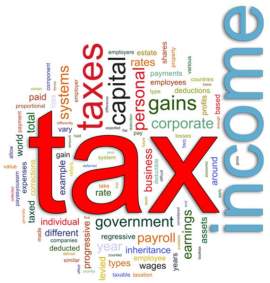
State and Federal Constitutional Constraints

Uniformity and Equal Protection Clauses:
The Uniformity and Equal Protection Clause can be utilized in many constitutional arguments. For taxes, the clause ensures that no individual, or entity is singled out for excessive taxation based on discrimination. Conversely, it forbids excluding an individual, or entity, from being responsible for taxes, except in certain circumstances. There are those that are exempt from taxes, such as churches and non profit organizations. Uniformity of taxes ensures that each taxpayer shares the responsibility for the tax burden, since each taxpayer enjoys the public benefits that are paid for by taxes.
The Clause does not mean that each tax payer is responsible for the same amount, or percentage of taxes, it simply ensures that each individual is responsible for taxes. However, no taxpayer can be responsible for an unreasonable amount of taxes, based on discrimination or prejudice. Individuals and entity's must all be responsible for the tax burden, regardless of factors that may set them apart from others. For example, a company that conducts business on a certain item, such as gold, can not be discriminated against because they do not sell silver. In other words, companies can not be responsible for a differing amount of taxes based on what type of commerce is pleasing to the citizens or government within a jurisdiction.
Implications of Due Process on Tax Law:
Citizens are entitled to challenge any tax that they believe is unfair, in violation of the constitution, or a tax that they believe that they are not responsible for. For example, a citizen is entitled to protest a tax assessment on personal property. Citizens are entitled to due process, which includes a speedy trial on issues before the court. Due process allows citizens to challenge the state, or federal government when they feel that they are being treated unfairly.
Frequently, the decisions in such cases are sited as case law. That way, the courts can sometimes prevent many cases of the same nature, from clogging up the courts. For instance, it is not necessary for many plaintiffs to challenge the same state tax. Only one case is necessary in order for the courts to grant a decision. However, citizens that do not agree with the decision, can challenge that decision or seek to appeal that decision. In addition, plaintiffs can appeal a higher court in order to have that court make a decision. Higher courts can decided whether or not to hear that case. Often, the case will be heard if the decision by a lower court was controversial or against government policy.
Commerce Clause:
The Commerce Clause allows congressional control over issues of commerce. In addition, the each state is granted control over specific issues that related to commerce. Congress has the power to make decisions about commerce between states, Indian Tribes and foreign Nations. The scope of that control has often been challenged in courts. Decisions made by the courts have upheld Congressional control over issues of commerce, including taxation. However, the states have been granted some individual control over some issues of commerce, including taxation of companies that do business in their state.
Conversely, the courts have determined that states do not have the power to prevent companies from doing business in their state, or to prevent a company form doing business in another state. For example, a NJ ban on truck drivers using local roadways when they were not conducting business in NJ, was overturned. The ban would prohibit truck drivers from taking the speediest route, which prevented them from conducting business in the most effective manner. Neither congress, or any state government, may make determinations that can adversely effect a business or the Nation as a whole.
NEXT: State Constitutions and Public Purpose Requirements





















